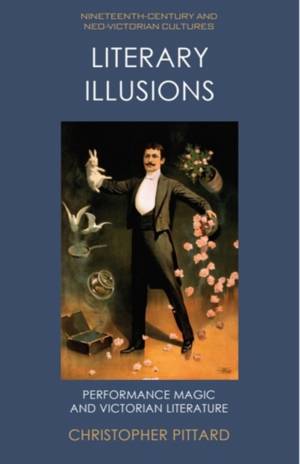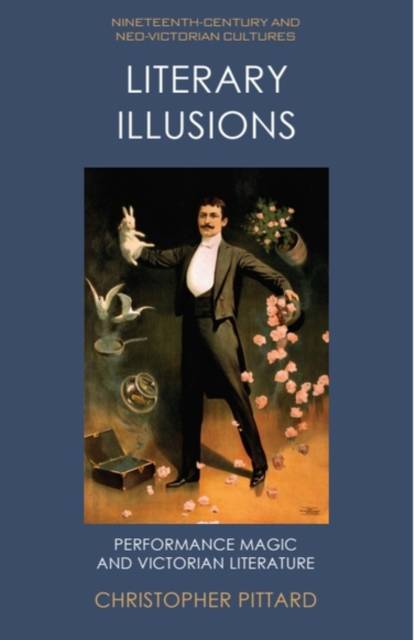
- Afhalen na 1 uur in een winkel met voorraad
- Gratis thuislevering in België vanaf € 30
- Ruim aanbod met 7 miljoen producten
- Afhalen na 1 uur in een winkel met voorraad
- Gratis thuislevering in België vanaf € 30
- Ruim aanbod met 7 miljoen producten
Zoeken
€ 201,45
+ 402 punten
Uitvoering
Omschrijving
Literary Illusions explores the dialogue between Victorian literature and one of the nineteenth century's most popular modes of performance: conjuring. It explores the ways in which Victorian literature frequently deployed the figure of the magician to explore performance magic as a metaphor for writing itself, and the ways in which conjurors themselves were authors (of highly fictionalised biographies), while authors explored the narrative opportunities offered by magic (most notably Charles Dickens). The book theorises magic as a manifestation of Victorian concerns with authorship and the intellectual property debate, with the magician often deployed as a privileged - and occasionally parodied - figure in debates on textuality. Literary Illusions offers a reconceptualisation of the relationship between popular culture and literature in the nineteenth century, bringing canonical figures such as Dickens and Elizabeth Gaskell into dialogue with lesser known Victorian bestsellers such as Henry Cockton and Jean-Eugene Robert-Houdin, and innovatively blends performance history with literary criticism.
Specificaties
Betrokkenen
- Auteur(s):
- Uitgeverij:
Inhoud
- Aantal bladzijden:
- 272
- Taal:
- Engels
- Reeks:
Eigenschappen
- Productcode (EAN):
- 9781474460330
- Verschijningsdatum:
- 31/01/2025
- Uitvoering:
- Hardcover
- Formaat:
- Genaaid
- Afmetingen:
- 156 mm x 234 mm
- Gewicht:
- 557 g

Alleen bij Standaard Boekhandel
+ 402 punten op je klantenkaart van Standaard Boekhandel
Beoordelingen
We publiceren alleen reviews die voldoen aan de voorwaarden voor reviews. Bekijk onze voorwaarden voor reviews.







